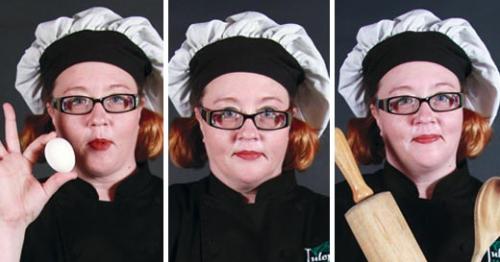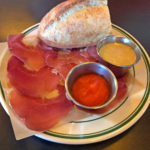Building a culinary team can be one of the most challenging things any chef faces. Naturally, chefs have a lot of tough challenges: food cost, sourcing, equipment upkeep, menu development; the list is endless.
Staffing, though – staffing is the key that unlocks the puzzle of being successful at all these other things. It’s fairly rewarding, building a team when you’re opening a restaurant. Most everyone you hire is excited, and there’s a whole lot of menu testing and putting away new smallwares, the incidental things you need to run a restaurant, such as perforated cooking spoons, cutting boards, bench scrapers, colanders, pristine white rubber spatulas and beautiful little copper-bottomed pots. Everyone in the new crew pretty much shows up every day at first. It’s an awful lot of fun peeling the plastic off that brand-spanking-new bread warmer, or unloading all those shiny china plates from their crates packed in corrugated separator sheets, and running them through the dish machine for the first time.
It’s an awful lot of fun, until opening day. And it’s even fun on opening day, and during opening week. But fairly soon, someone will no-call no-show, or quit for what seems like an arbitrary reason.
That guy you referred to the chef for a line cook’s position? He suddenly gets the legal settlement he’s been bragging about expecting, and even though he’s only worked here a week he’s in the wind. The recent culinary school graduate who had several resumes in the fire leaves for a job making a dollar more an hour. The new sous chef bolts for a chance to be the lead chef at a place that’s not even close to being open yet. These fair-weather employees rarely give two weeks’ notice, either. And, to be fair: these jobs mostly don’t include any paid time off or benefits of any sort, so it’s hard to blame them. This is not corporate America. This is the hospitality industry. It’s difficult to expect loyalty from a nine-dollar-per-hour worker, when they can get ten dollars an hour somewhere else. It’s not like they are going to have to figure out how to switch their 401K or health insurance carrier. They have neither.
Long ago and far away, I was music major the first time I went to college. So I always tend to think of a culinary crew like a band of sorts. Your grizzled sauté cook might be an effing ninja on the stove, but he can’t work without a having a cigarette out back every 15 minutes – like a fantastic guitar lead who only shows up to one out of three band practices. He only wants to be there during the show, with the applause and all that goes with it. He certainly doesn’t want to be there peeling carrots at 1 PM. And he definitely bounces before the trash gets taken to the dumpster at midnight.
So when ninja sauté cook falls out, you hire an awesome new sauté cook who’s ready to learn, and always shows up on time but cries like a nine year old girl when he can’t find his favorite pair of tongs. Sort of like a great bass player that simply can’t function because his prized guitar pick is AWOL.
The pantry cook is a pretty good keyboard player until he suddenly can’t find the relish he spent yesterday afternoon making. Vendettas spent searching for something that’s missing in the kitchen take up a lot of time. Prep cooks are a restaurant’s backup singers who vie for space in the dressing room and ask too many questions when you’re getting ready to open the doors.
And then there’s you, the chef – a band manager of sorts. You just want to get the show onto the stage and you don’t want to hear a lot of BS about why this or that person is having a hard time getting ready to perform. And you certainly don’t want to hear that your drummer, the dishwasher, joined another band without bothering to tell you. Because that drummer/dishwasher was keeping everything together and now maybe you have to step behind the drum kit instead of living your fantasy: introducing the band while wearing your new suit jacket.
The struggle is real. Any chef that can maintain a loyal crew that shows up on the regular and puts out tasty, consistent food deserves our respect – and a chef’s jacket with a swallow-tail and a bowtie made of wooden spoons.
Marsha Lynch has worked at many Louisville independent restaurants including Limestone, Jack Fry’s, Jarfi’s, L&N Wine Bar and Bistro, Café Lou Lou, Marketplace @ Theater Square, Fontleroy’s and Harvest.




